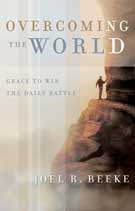Seventeen days later, and I’m finished. In my defense, I also had to prepare for a sermon, some bible study lessons, some Sunday School lessons, and 5 tests. No way should this have taken that long. As Chandler Bing once said, “I feel violated. And not in a good way.”
As Chandler Bing once said, “I feel violated. And not in a good way.”
There’s this thing in literature, sort of a social contract between readers and writers, called the “suspension of disbelief.” It’s a willingness of a reader or viewer to suspend his or her critical faculties to the extent of ignoring minor inconsistencies so as to enjoy a work of fiction. For example we all agree to accept that a geek who was bitten by a radioactive spider, becomes a super-strong man who can stick to walls and things so we can enjoy the movie/comic. Or we all agree to accept that a mouse making motor noises could propel a toy vehicle. Or that Amber Valletta could be attracted to Kevin James. Or that William Shakespeare was literate. I could go on.
But this book pushes things too far. Just cannot accept pretty much any of it. It’s easier to believe that the Red Sox won the World Series within the last decade than it is to accept this plot. I won’t go into details…hate spoilers…but this is a mare’s nest of a story line.
And the writing, it has all of the panache and creativity of an episode of Hunter during its last year. From the torturous murder at the beginning to the “sexy” and “funny” scene at the end (if it’s ever filmed, Stephen J. Cannell’s name has to show up on the screen), it was enough to make me pull my hair out.
Here’s a sample of the genius that is Dan Brown:
The Vatican switchboard is located in the Ufficio di Communicazione behind the Vatican post office. It is a relatively small room containing an eight-line Corelco 141 switchboard. The office handles over 2,000 calls a day, most routed automatically to the recording information system.
Tonight, the sole communications operator on duty sat quietly sipping a cup of caffeinated tea. He felt proud to be one of only a handful of employees still allowed inside Vatican City tonight.
Do we need any of those things I underlined? This is a throw-away character. Nothing about him matters and he’ll not be seen again after the next page.
Towards the end of page 4 thru the top of page 6, we’re treated with a large “info drop” telling us everything we’re going to need to know about the protagonist. It’s like one of those scenes in Asimov where the newbie to the culture is told by a veteran everything about how a spaceship (or whatever) works. Now that’s kind of annoying, but at least there are characters interacting…maybe a little development or something. Here, nothing like that. Just the narrator telling us all sorts of nifty things about Langdon. Maddening.
Oh, and my question from day 1? “How did Dan Brown ever convince someone to publish this trite, tripe-filled, self-indulgent, first draft?” Still no idea. None at all.
And yet again contempt has driven me to a rant, not the review I set out to do. Sorry.
On to The Da Vinci Code–maybe you’ve heard of it.
oh yeah…SOUL PATROL! SOUL PATROL! SOUL PATROL!



 No energy to do a bigger review. But this is a book to get. Basically, it’s purpose is to answer the big “So What?” question regarding the Doctrines of Grace. What difference does Calvinism make to the way you live? How does it effect your prayer, your assurance, your sanctification, the way you look at evangelism or adversity? The chapter on “Law & Liberty” is better than many books written on either subject. Good read. Easy read. Powerful read. Haven’t seen my wife this into a book not written by J. K. Rowling in years.
No energy to do a bigger review. But this is a book to get. Basically, it’s purpose is to answer the big “So What?” question regarding the Doctrines of Grace. What difference does Calvinism make to the way you live? How does it effect your prayer, your assurance, your sanctification, the way you look at evangelism or adversity? The chapter on “Law & Liberty” is better than many books written on either subject. Good read. Easy read. Powerful read. Haven’t seen my wife this into a book not written by J. K. Rowling in years. Joel Beeke is fast becoming one of my “go-to” guys when it comes to contemporary theology, and this book is a stellar example why I’m turning to him faster than “bigger named” Reformed writers. I’ll start with my complaints and then move into the reasons I think any Christian who is not yet completely sanctified should read this book.
Joel Beeke is fast becoming one of my “go-to” guys when it comes to contemporary theology, and this book is a stellar example why I’m turning to him faster than “bigger named” Reformed writers. I’ll start with my complaints and then move into the reasons I think any Christian who is not yet completely sanctified should read this book.